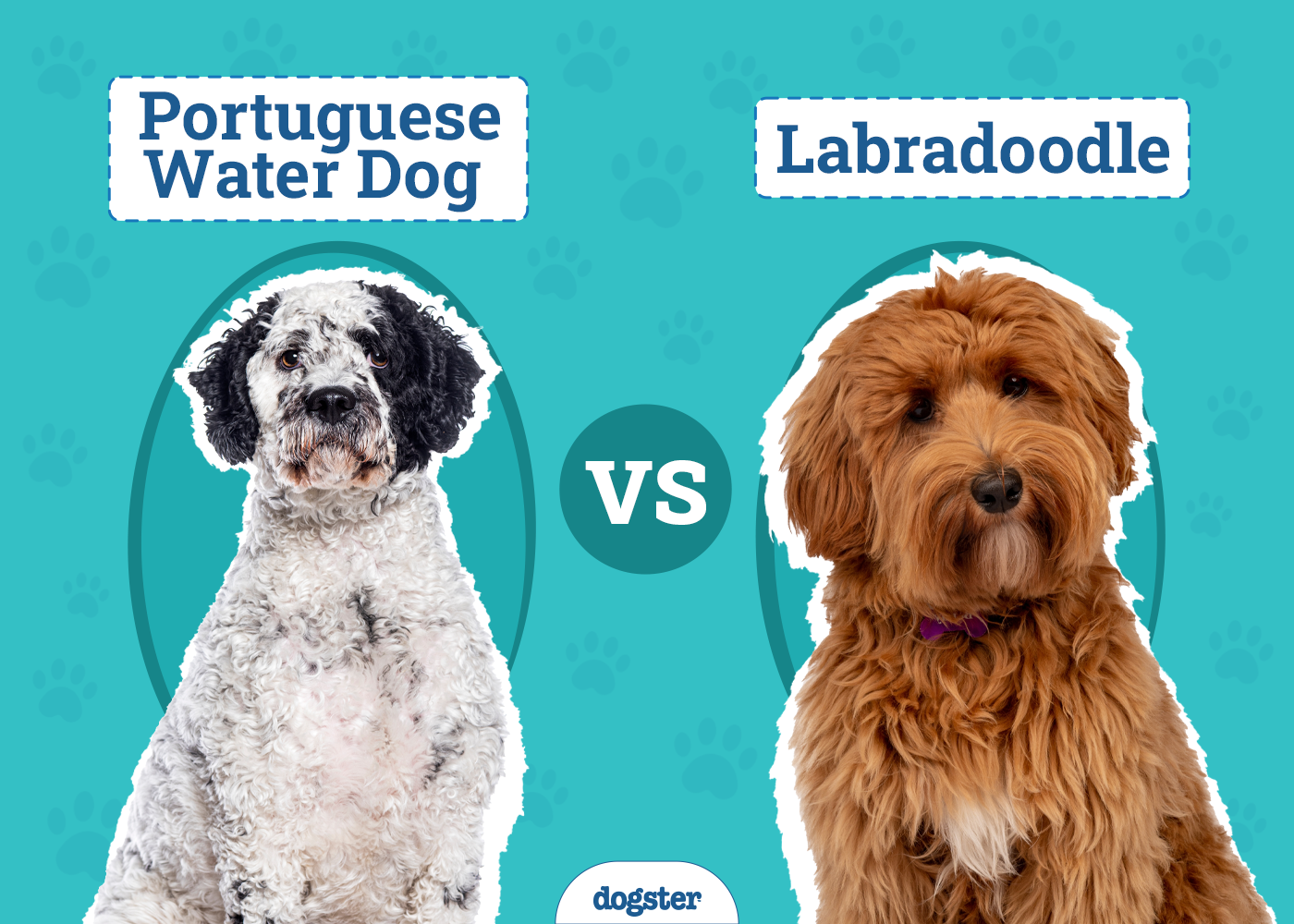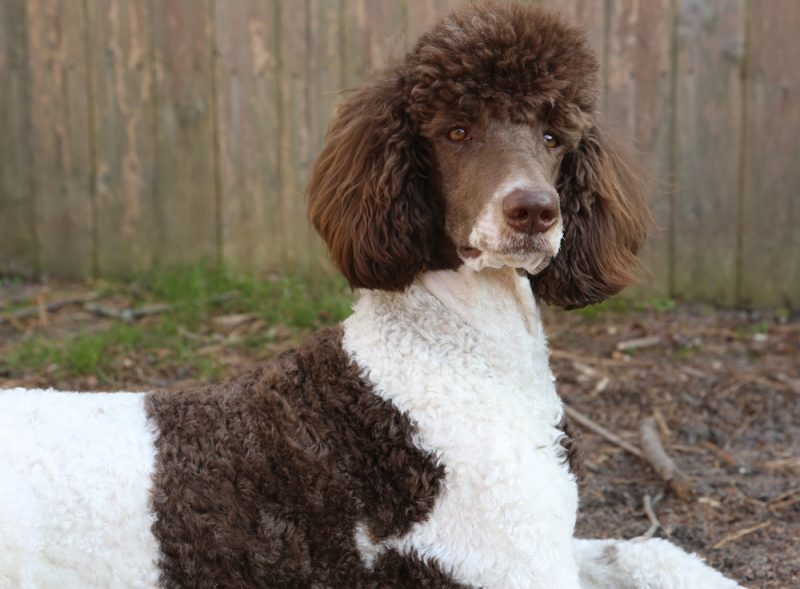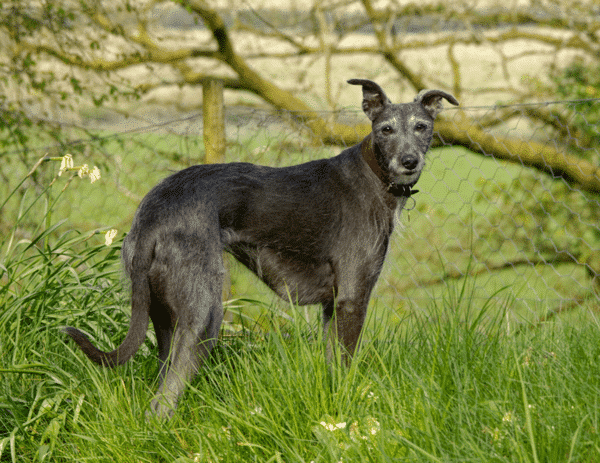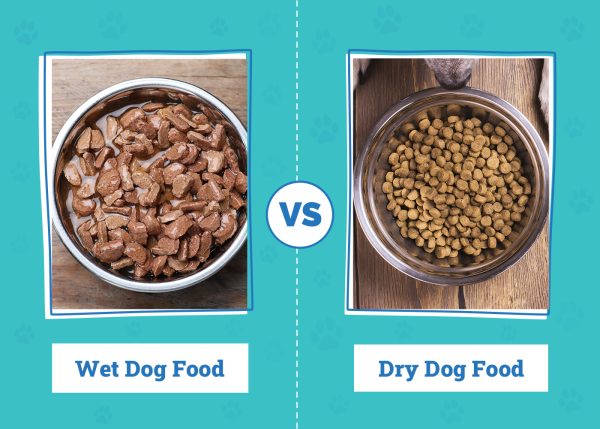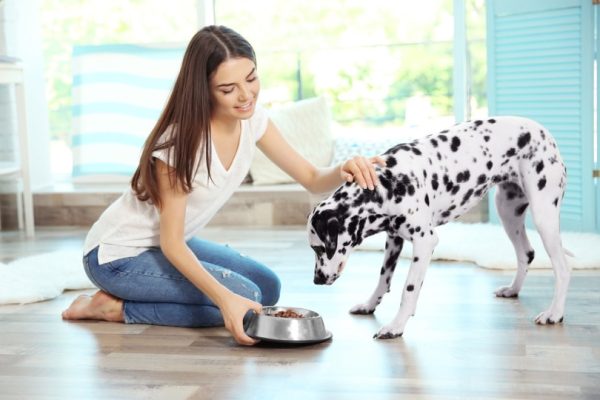In this article
View 3 More +Portuguese Water Dogs (PWD) and Labradoodles have a lot in common. In fact, experts believe that the Standard Poodle, one of the parent breeds for the Labradoodle, is a close relative of the PWD, so it should come as no surprise that the two breeds have many similar personality traits. They are both highly intelligent, affectionate, loyal, and friendly.
However, because PWDs have a background as working dogs, they are content waiting at their master’s side for direction. They form deep bonds with their owners and don’t do well when left alone for too long. On the other hand, Labradoodles are a little more easygoing and are okay with being alone for the day.
If you’re in a position where you’re trying to decide between Porties and Labradoodles, you’ve got your work cut out for you. Read on to learn more about the differences between the two breeds so you can decide which is best for your family and lifestyle.

Visual Differences
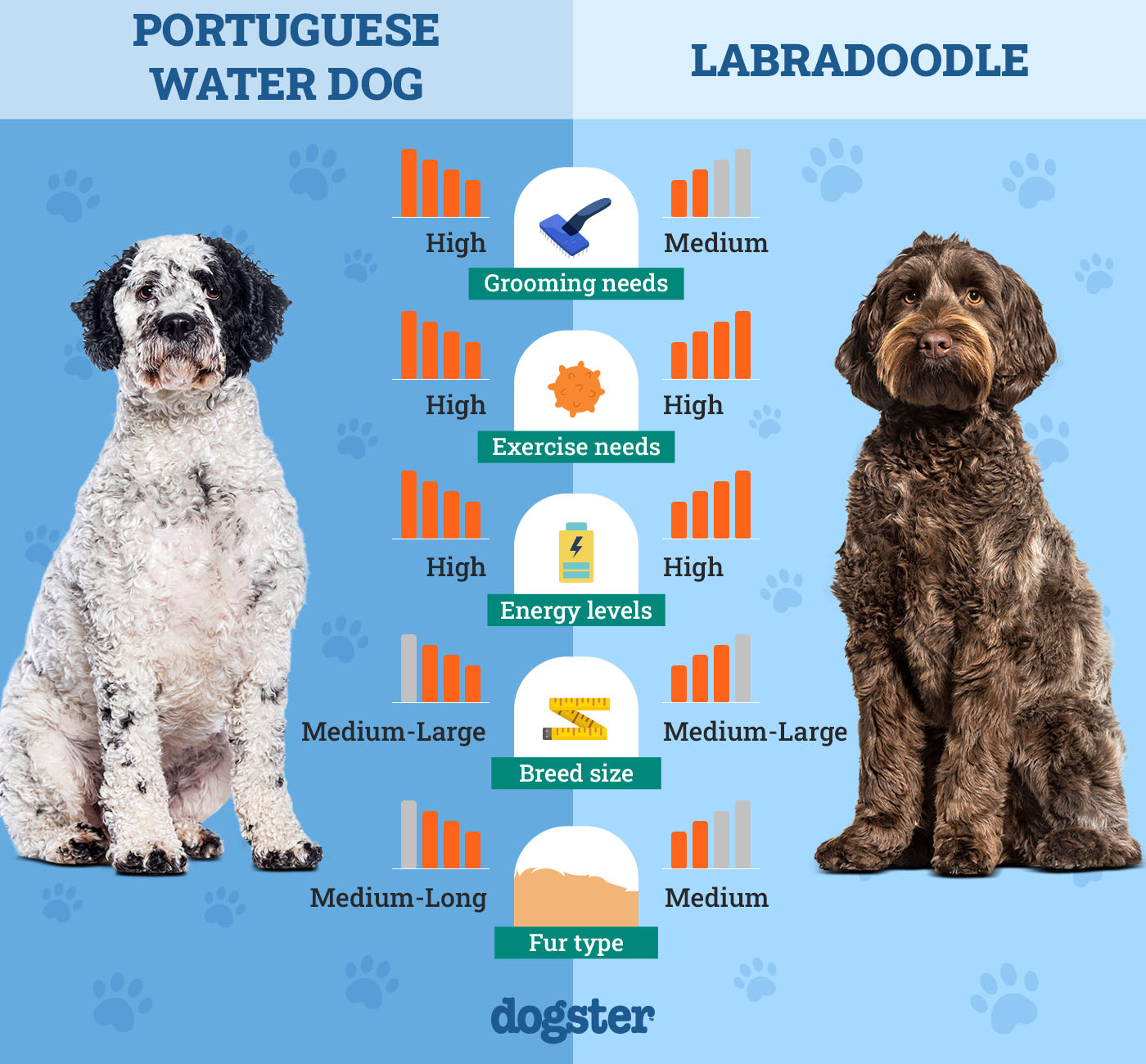
At a Glance
- Average height (adult): 17–23 inches
- Average weight (adult): 35–60 pounds
- Lifespan: 12–15 years
- Exercise: 1+ hour a day
- Grooming needs: High
- Family-friendly: Yes
- Other pet-friendly: Yes
- Trainability: Highly intelligent, eager to please, focused
- Average height (adult): 21–24 inches
- Average weight (adult): 50–67 pounds
- Lifespan: 12–15 years
- Exercise: 1+ hour a day
- Grooming needs: Moderate
- Family-friendly: Yes
- Other pet-friendly: Yes
- Trainability: Intelligent, eager to please, confident

Portuguese Water Dog Overview
The Portuguese Water Dog, as you may guess from the breed’s name, originated in the Algarve region of Portugal. They were popular along the coast of Portugal with fishermen as they were taught to herd fish, retrieve lost tackles, and act as couriers.
The Porties’ dense coat makes it one of the best options for people with pet allergies. Of course, no animal is 100% hypoallergenic, but because of its coat and the fact it doesn’t shed or drool much, a Portie can be a good fit for allergy sufferers.
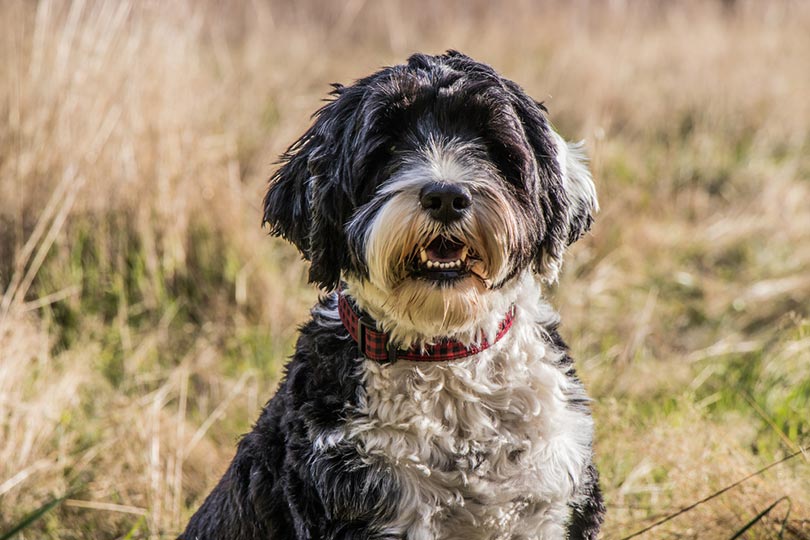
Personality
Portuguese Water Dogs are a tireless, fun-loving breed known for their high intelligence. They love goofing around with their humans but can be independent and strong-willed. Most Porties choose to form a strong bond with one primary family member. Some people believe this is because the breed was taught to work in close proximity to its master on fishing boats.
Porties are happy to be at their master’s side, waiting for instructions. Because they’re so smart, they learn commands quickly and enjoy training. However, since this breed bonds so intensely with their humans, they don’t like being left alone for too long.
Exercise
Porties are working dogs and need at least 60 minutes of vigorous exercise daily, but the more you give them, the better. Without proper exercise and mental stimulation, this breed can become very destructive, chewing up virtually anything in your home.
Because Porties were practically born on the water, they absolutely love water and swimming. In fact, they are one of the best swimmers among all dog breeds. They can swim for extended periods without getting tired.
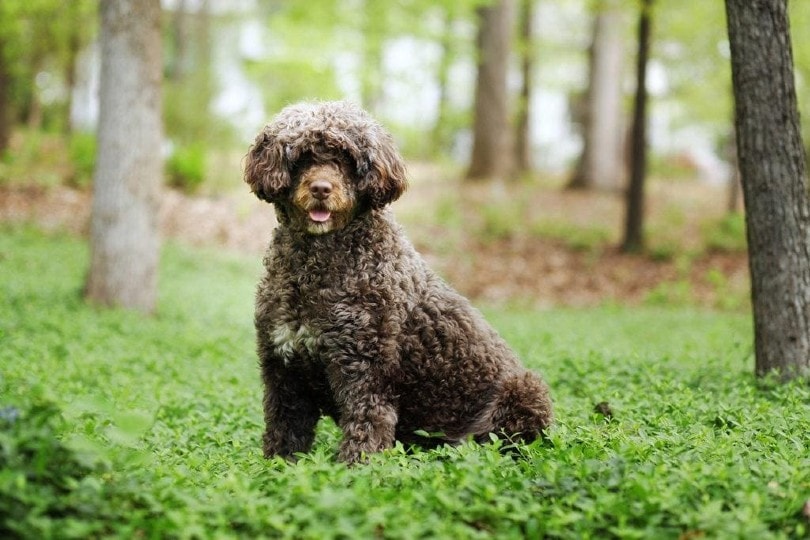
Health
Like all purebred dogs, Portuguese Water Dogs may be genetically predisposed to certain health conditions. For example, they may develop hypothyroidism when the thyroid gland is not producing hormones as it should. They can also develop hip dysplasia, characterized by the hip’s ball and socket not fitting together properly.
Addison’s disease is a dysfunction of the adrenal glands that PWDs are predisposed to. This condition occurs when the adrenal glands don’t produce the hormones that the dog’s body requires to regulate its organ and body systems.
Suitable For:
Portuguese Water Dogs make great family companions and can thrive in households with children and other pets. However, they may be a bit too rambunctious for small children, though this would be less of an issue if the two grew up together. In addition, Porties are highly active, so they need owners willing and able to take them out to burn excess energy every day.

Labradoodle Overview
Labradoodles appear to have originated in Australia sometime in the 1980s. This hybrid is mostly accredited to a visually impaired woman from Hawaii who wanted to adopt a guide dog that wouldn’t cause her husband’s pet allergies to flare up. A man named Wally Conron suggested crossing Labrador Retrievers with Poodles, and the allergy-friendly Labradoodle was born.
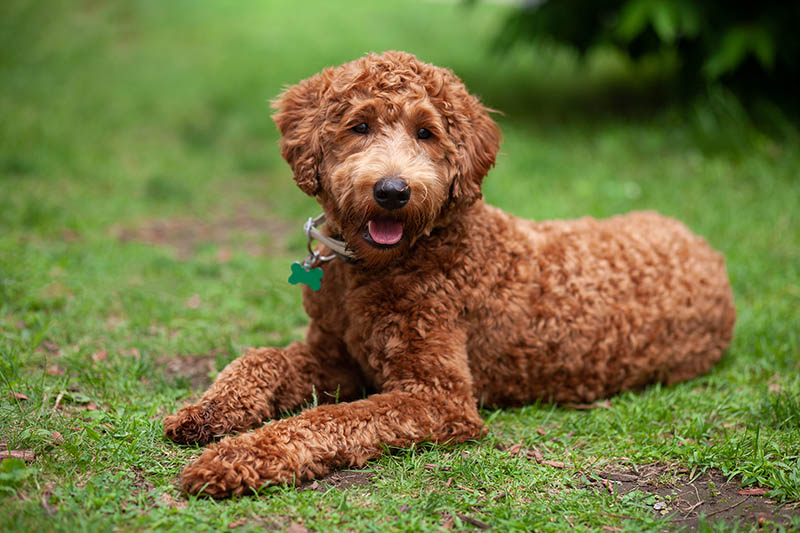
Personality
Labradoodles are extremely gentle, friendly, outgoing, and playful dogs. They love people and have no qualms about showing affection to their humans. They may adopt an affinity for water and impeccable swimming skills for their parent breeds. Labradoodles are likely to be intelligent as their parents are among the most intelligent dog breeds.
Exercise
Adult Labradoodles need at least one hour of exercise daily, though some may require more to burn off excess energy. Because these dogs are so intelligent, you might consider adding obedience and agility training to their exercise regimen.
As mentioned above, this breed loves to swim. You’ll have difficulty keeping it out of rivers, lakes, streams, and virtually any body of water you run into on your adventures. Thankfully, swimming is a great way to exercise your pup.
Health
Though the Labradoodle is a hybrid dog, it still has the potential to develop genetic health issues. They can develop conditions common to their parent breeds.
Labrador Retrievers may develop tricuspid valve dysplasia, a condition marked by heart valve malfunction. This valve will allow blood to leak backward, resulting in an enlarged right atrium and ventricle. This breed could also develop elbow and hip dysplasia, inherited orthopedic conditions that can cause lameness and pain. They may also be at risk of exercise-induced collapse (EIC). EIC results in weakened hind limbs, incoordination, and collapse.
Poodles may develop Von Willebrand’s disease, a rare blood clotting disorder. This condition makes blood slow to clot or not clot at all. This can be dangerous if your Labradoodle needs surgery or gets injured. This breed may also be at risk for idiopathic epilepsy, an inherited seizure disorder, and gastrointestinal issues.
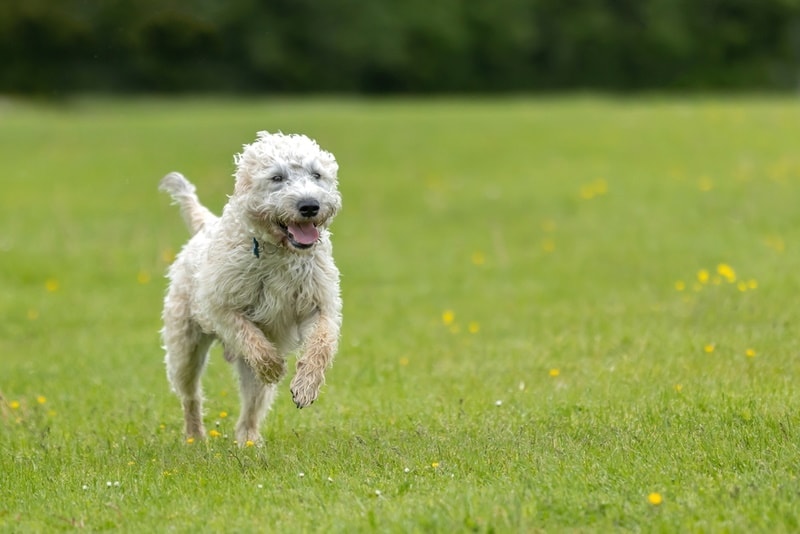
Suitable For:
Labradoodles make great family companions as they’re so gentle and affable. They are highly devoted to their family members and do best in households with energetic companions. This very affectionate breed with a playful spirit needs at least one hour of exercise daily.

Which Breed Is Right for You?
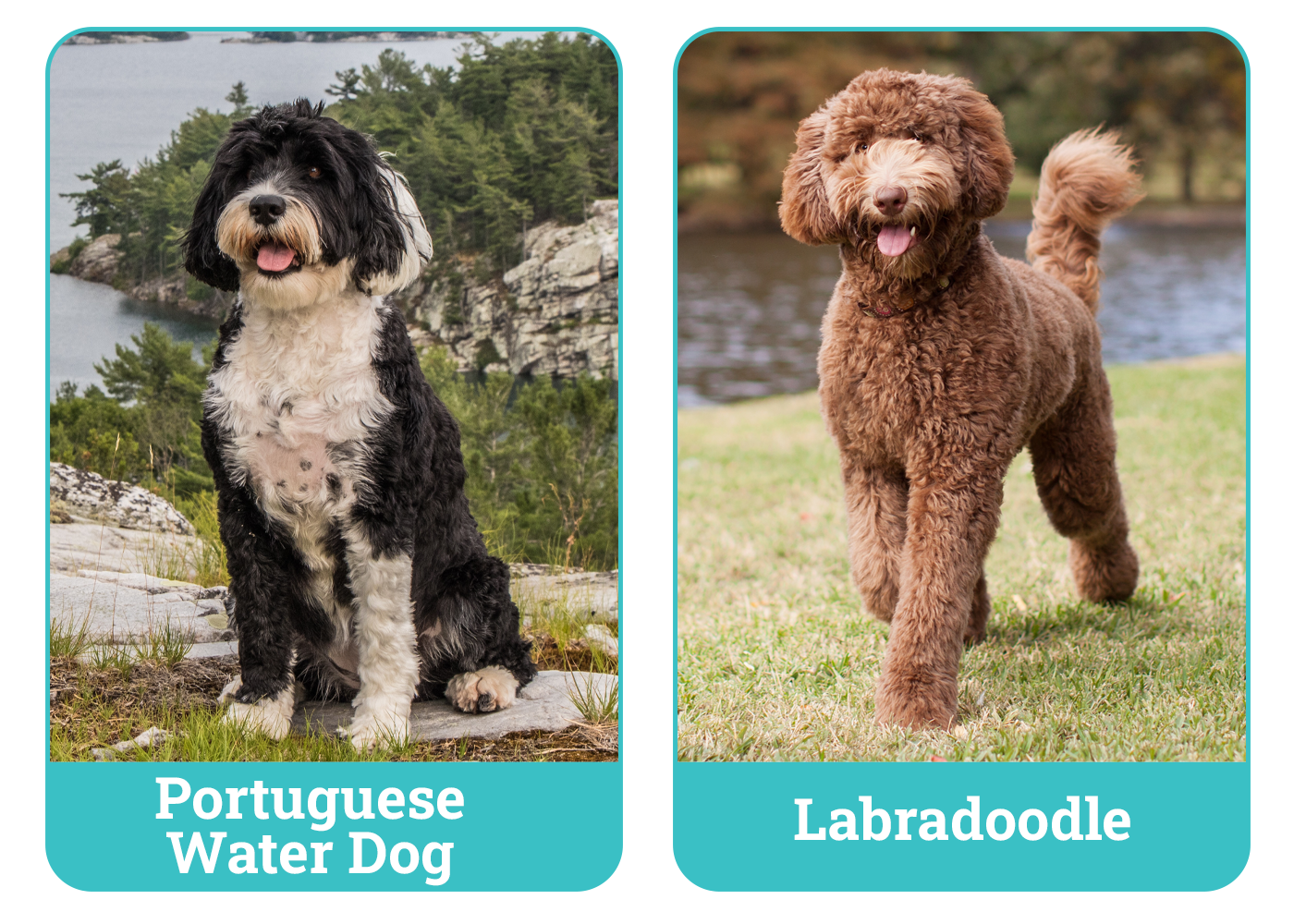
Portuguese Water Dogs and Labradoodles have a lot in common. They are friendly and affectionate, making them great for families with children. Both breeds can be a good fit for households with allergies.
But they have their differences, too. Porties are a bit smaller than Labradoodles, weighing between 35 and 60 pounds. The latter typically weighs anywhere between 50 and 67 pounds.
PWDs have a strong work ethic and loyalty to their owners but don’t care to be left alone for too long. Labradoodles make great service dogs, but they don’t have the same work ethic as a Portie. They are typically happy with a lower-key lifestyle and can make great pets for first-time dog owners. Still, because they’re a hybrid breed, it can be difficult to know exactly what characteristics a Labradoodle will inherit from its parent breeds.
Deciding between a Portie and a Labradoodle is tough, but we hope we’ve helped shed some light on the two breeds, so your decision-making process is easier. You honestly can’t go wrong with either breed, as they’re both winners in our mind.
Related Reads:
- Labradoodle Dog Breed vs. Bernedoodle Dog Breed: The Key Differences (With Pictures)
- Portuguese Water Dog vs Goldendoodle: Key Differences (With Pictures)
Featured Image Credit: (T) Lynda McFaul, Shutterstock | (B) Justin Sienkiewicz, Shutterstock
